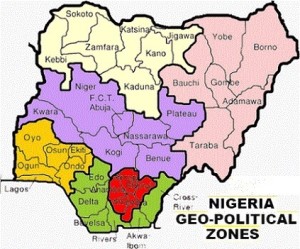
By Amos Tauna :
President, Veterinary Council of Nigeria, Professor Garba Sharabutu, has emphasized the need for a special forest squad that will protect and ensure the safety of the country’s forest against all forms of criminality.
He lamented that the forest which has all the resources , has been taken over by bandits unleashing terror leading to killings, kidnapping, cattle rustling, among other criminality that has become the order of the day in the country.
Speaking as guest speaker at this year media round table to commemorate 2018 World Veterinary Day organized by the Nigerian Veterinary Medical Association, Kaduna State chapter, northwest Nigeria on “The role Veterinary profession in sustainable development to improve livelihood”, Sharabutu noted that the special forest squad should be given the best training that would enable them curb all manners of criminality that criminals were using the forest to ensure insecurity in parts of the country.
The special forest squad if properly trained with modern tools, according to him, would be able to know the presence of scrupulous elements in the forest and thereby alert security agents for prompt action the could save the country the destruction of lives and property witnessed in recent years in the country.
The squad would through their training be able to know the presence of unwanted visitors in the forest through the songs of birds, adding that these were methods being adopted by some countries to secure their forest from being taken over by bandits.
He noted that “Veterinary medicine is the only profession that touches almost every aspect of human life, therefore the need for the country to give priority and encourage more people to join the profession.
“Though Nigeria has about 10,000 Veterinarians, yet it is not enough to meet the veterinary needs of the nation, because the country needs at least 20,000 veterinarians to effectively affect both human and livestock by 2020.
“Veterinarians are responsible for the prevention and control of animal disease outbreaks, by ensuring that there is sufficient and safe high-quality food throughout the country and also contributing to the inspection of the whole food chain.”
With the presence of veterinarians in every nook and cranny in the country, he explained, they would be able to know all different cattle in the country, stressing that even in event of theft, a veterinarian would be able to detect where the cattle is coming from thereby curbing cattle rustling in the country.
Professor Sharabutu said, “If extension services of veterinarians are given recognition by the government, the issue of herders/farmers crisis and cattle rustling would be effectively checked, because only veterinarians are trained with the capacity to determine types of cattle breeds and where they are coming from.”
He lamented that the neglect of traditional institutions was another area that could have helped in curbing disaster posed by livestock farming, saying, “This people are expert to the extend that if you sell your crops, they know whether you have stolen from somebody, because they know your capacity.
“They know how many heaps you have, they know how many animals you have, those ones are gone, so why don’t we decide to say let us go back to those days, so that any new person that is coming into the community will be known.”
In his presentation, Managing Partner Ambuvets Konsult Limited, Dr. Shehu Shamsudeen, explained that careful study of the Sustainable Development Goals revealed that at least 7 of the goals are directly or indirectly dependent on inputs from the veterinary profession.
He noted that dealing with poverty and decent work and economic growth were particularly important as far as the role of the veterinary profession in sustainable development and promotion of livelihood was concern.
He explained, “The contribution of the profession to human livelihood is best appreciated following proper understanding of the relationship between livestock ownership, household and national economies especially in developing world.
“Livestock ownership is very important to household economy in Nigeria where most rural chickens and small ruminants are managed by women.
“To the poor farmers livestock are assets (capital and source of income), provides animal tractions and fertilizers, livestock are a means of insurance in times of financial crisis substantial increase in livestock productivity and improved resilience is an opportunity to lift people out of poverty.
“At a macroeconomic level, livestock contribute about 40% of the agricultural GDP and is one of the fastest growing sectors in developing countries. Hence a proper utilization of the economic benefits of livestock markets can help to sustain overall economic growth.”
Kaduna State Chairman of NVMA, Dr. Yila Umar, explained, “In many global rural areas, the inhabitants are greatly dependent on animals for their livelihood, keeping the soil fertile, and providing power for ploughing and transport, which in many cases provide family’s primary source of income. Ensuring this function, veterinarians are also vital for the development of regional and national economies.”
He observed that because of the growing world population and the rise in demand for animal protein, the environment’s deterioration and decrease of natural resources and the emergence of zoonotic diseases, veterinarians played a crucial role in securing the development of more sustainable, responsible and efficient livestock production systems to ensure sufficient resources for future generations.
“By implementing a One Health Approach, veterinarians are working together with other health professionals to improve and develop new production systems that are also respectful of animal welfare and the environment.
“By doing so, veterinarians are contributing to achievement of the United Nations Sustainable Development Goals to reduce poverty and ensure zero hunger, good health and economic growth,” Dr. Yila said.
https://www.africaprimenews.com/2017/10/31/opinion/conflict-earth-mother-nature-fights-back/